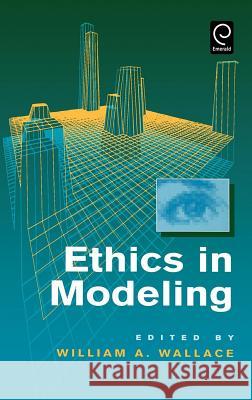Ethics in Modeling » książka
Ethics in Modeling
ISBN-13: 9780080419305 / Angielski / Twarda / 1994 / 276 str.
The use of mathematical models to support decision-making is proliferating in both the public and private sectors. Advances in computer technology and greater opportunities to learn the appropriate techniques are extending modelling capabilities to more and more people. As powerful decision aids, models can be both beneficial or harmful. At present, few safeguards exist to prevent model builders or users from deliberately, carelessly, or recklessly manipulating data to further their own ends. Perhaps more importantly, few people understand or appreciate that harm can be caused when builders or users fail to recognise the values and assumptions on which a model is based or fail to take into account all the groups who would be affected by a model's results. This volume provides a setting for a dialogue about ethics and shows the need to continue and define a vocabulary for exploring ethical concerns. It will become increasingly important for model builders and users to have a clear and strong code of ethics to guide them in making the ethical decisions they surely will have to face.











